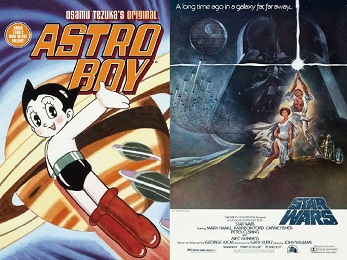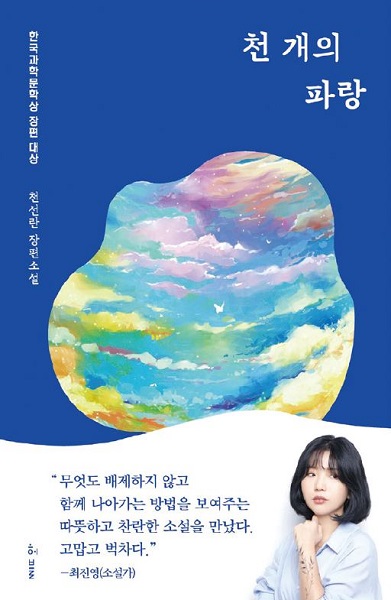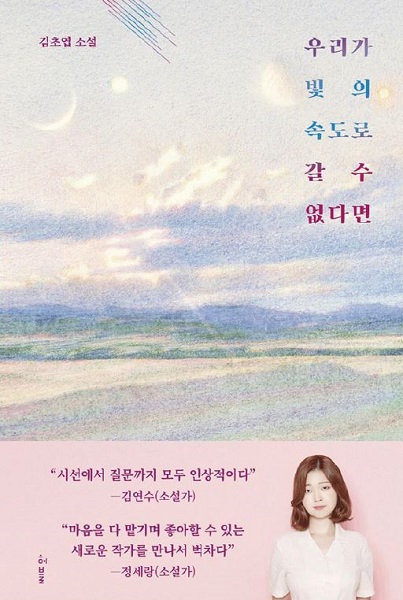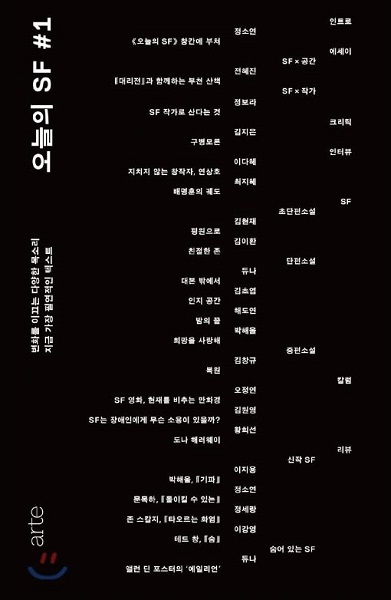Just a few years ago, 2021 seemed a lot like a year taken from a science fiction novel; however, such a future has now become our present. Is this what has triggered the emerging trend of science fiction novels in the Korean literary market? With Kim Cho-yeop’s Greenhouse at the End of the Earth ranking high on the bestseller chart of Kyobo Book Centre in September, there is no doubt that science fiction novels now account for an important portion of modern Korean literature. Through this article, the Sungkyun Times (SKT) hopes to explore what exactly science fiction is, why the genre has gained so much popularity, as well as its future outlook.
Introduction to Science Fiction
All About Science Fiction
Science fiction, often referred to as “SF” or “sci-fi”, is a form of speculative fiction that mostly deals with a futuristic world built upon scientific facts or theories. Even though “sci-fi” is a more widely used abbreviation, “SF” is generally more preferred by writers and readers. Although science fiction itself roots back to ancient mythologies, Mary Shelley’s novel in 1818, Frankenstein; or, the Modern Prometheus, is widely accepted as the earliest SF story. In the novel, scientist Victor Frankenstein accidentally creates a monster after discovering how to bestow life on inanimate matter. However, the novel also explores concepts such as the failure of modern science by introducing a horrific monster and the future of mankind. Since then, SF has been adapted to other types of media including films, TV, and graphic novels. Star Wars, the American epic space opera film series, and Astro Boy, a Japanese manga that follows the adventures of an android are typical examples of the genre.

Golden Age of Korean SF
The history of SF in Korea goes back to around 100 years ago. The earliest SF novel to be introduced in Korea was Twenty Thousand Leagues Under the Seas by French writer Jules Verne; it was serialized in an academic journal from 1907 to 1908. In terms of local works, Kim Dong-in’s short story, The Study of Dr. K, is considered to have been the earliest work of Korean SF. However, not many SF works were published following this. Moon Yoon-seong’s Perfect Society published in 1965, which was 36 years later, is mentioned as the first Korean adult SF novel. SF has been a common genre in other media such as webtoons and films. Examples include The Host, a 2006 film that focuses on a monster created by the unauthorized release of formalin in the Han River. On the contrary, because novels are not visual media, SF is still a minor genre in the literary market. However, because of the 2016 Google DeepMind Challenge Match, as well as the success of Interstellar, public interest in topics such as the imminent future of mankind and science has grown, leading to an increase in popularity for SF novels. As of 2021, Kim Cho-yeop’s If We Cannot Move at the Speed of Light has sold over 200,000 copies, and SF writer Kim Bo-young’s novels have been published in HarperCollins. Moreover, according to Kyobo Book Centre, the sales of SF novels increased by 550% compared to the 30% increase in local novel sales from January to September last year.
What is Unique About Korean SF Literature?
Human-Centered Storytelling
Many people still maintain a rather negative view of SF as a genre, often referring to it as “fantasy science fiction”. This originates from the fact that past SF novels focused on scientific facts or theories, making the storyline hard to understand. However, the current trend of SF tends to focus more on human-centered storytelling; several critics have even referred to the characteristics of Korean SF as a “reflection of reality”. For example, Cheon Seonran’s A Thousand Blues is an SF novel where a humanoid horseman robot named Coli appears as a main character. However, such a setting does not drive the story; rather, the plot centers on the contemplations that the characters face. The stories of Yeonjae, who is forced to give up on her dreams despite her talents, and Bo-kyung, whose timeline stops when her loved one passes away, are ones that readers can easily empathize with. According to an article written by SisaIn, Kim Hyo-sun, a merchandiser in charge of Aladdin’s Korean literature, said, “There were many readers who thought SF was difficult, but such views have changed with the increase of sensitive SF novels,” recognizing human centered storytelling as a characteristic of Korean SF.

A Way to Speak Out for Change
Unlike the past, recent SF novels have not only dealt with natural sciences, but also social sciences such as philosophy and politics, and have become a way to speak out for change in society. In the Paju Publishing City Newsletter, author Kim Gyeowol referred to SF as a “medium that embodies a world that has not yet been reached”. With discrimination against people with disabilities and members of the LGBTQIA community still existing, it may have seemed attractive to readers that they could be portrayed differently in a future society. Lily Doudna, a character in Kim Cho-yeop’s Why Don’t the Pilgrims Return, is portrayed as a genius Latin American scientist, but at the same time struggles with discrimination against her race, gender, and looks, especially with the huge scar in the middle of her face. Because of this, she intends to make a new, perfect race of people using her talent in genetic engineering, but this only increases social polarization. Before she dies, Lily creates a “village” outside of Earth with the hope of leaving a world free of discrimination to her daughter, Oliver. However, Oliver returns to “Earth” and fights against this imperfect society. Kim Cho-yeop mentioned that she has “always liked writing about individuals who yearn to change the world”.

The Future of Korean SF Literature
Literary Adaptations and Triggering a New Trend
As mentioned earlier, SF was a genre often used in webtoons and games before – the recent trend in the literary market has been rather belated. However, it can be expected that the adaptation of Korean SF novels into other media can become a new trendsetter. Space Sweepers, the first Korean SF film set in space starring Song Joong-ki and Kim Tae-ri, ranked high in 76 different countries on the day of its release on Netflix and got positive reviews from critics. Along with its action scenes and computer graphics, it showed the development of Korean film technology, bringing the media adaptation of Korean SF novels closer than they may seem. Furthermore, the announcement that the next work of Kim Bora, the director of House of Hummingbird, is to be based on Kim Cho-yeop’s Spectrum, and news that Studio Dragon, which has participated in the making of TV shows including Sweet Home and Hotel del Luna, will be taking a part in this year’s Korean Science Literature Award have drawn much attention from local SF fans. With the previous success of both the original novel and the film adaptation of The Martian in 2015, fans are hoping that such a trend will begin in Korea as well.
Supporting the SF Market
However, there are still challenges to be solved before imagining such a future. Many SF writers have agreed that there is still a lack of literary criticism. In an interview with YES24, author Bae Myung-hoon said that criticism is important for the development of fiction; he also went on to say, “Since SF criticism is still not widely known in Korea yet, we should study and revise theories used in the States.” Even though the first SF mook (magazine+book) journal, Today’s SF (2019), has been providing a place for new writers to present their works and receive critiques, there is still a long way to go. Chung Se-rang, an editorial board member and author, said that since most literary and artistic support is provided through magazines, she hopes to receive more support to prevent discrimination between genres in the literary market. Furthermore, although there are more than 400 literary awards in Korea, only three of them are related to SF – many have spoken out that government support is necessary to expand the number of awards and contests. As the SF market is still developing, people hope that soon, there will be an emergence of more diverse types of works with writers and readers both finding stability.

